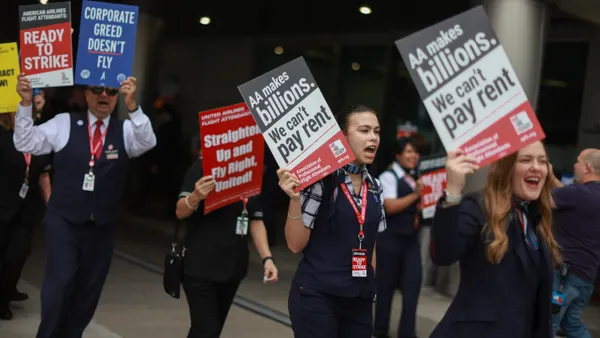Dive Brief:
- Managers think they’re better at their jobs than their direct reports believe, according to an Oct. 19 report from 15Five. Managers also said they feel pressured by the pandemic and do not have the right tools to do their jobs effectively.
- Less than half of employees surveyed said one-on-ones with their managers are helpful, compared to 74% of managers who said the same. However, frequency of one-on-ones matters, the survey said; employees with monthly or less frequent one-on-ones are 1.4 times more likely to say they are looking for a new job compared to those who meet weekly or more.
- “Today, there’s a significant gap between what leaders believe motivates their people and what people actually need to stay motivated,” Shane Metcalf, Chief Culture Officer of 15Five, said in a statement.
Dive Insight:
The COVID-19 pandemic required sudden, stressful changes for employees at nearly every company — and much of the pressure to assist workers fell on managers, an April Willis Towers Watson survey said. Employers largely anticipated those hurdles, the survey noted, but only a quarter of respondents said they had upped manager training in preparation.
Such training may be necessary; in the wake of social distancing orders and area lockdowns, many companies went fully remote that had not been before, creating a steep learning curve for many workers. The demands of managing teams while remote, especially, may require employers to educate managers on expectations and best practices, experts previously told HR Dive. A reminder of the power of empathy can go a long way.
"Statements of empathy and support can have an extraordinarily positive impact on people on people, and extend into workplace engagement," Jordan Birnbaum, vice president and chief behavioral economist at ADP, previously told HR Dive "A statement as simple as, 'I can imagine how difficult this must be. I want you to know I understand and will do anything I can to help,' can be great leadership in the moment."
Bad bosses can damage productivity and drive top employees away, previous studies have shown. But for managers to be able to lead effectively, they may need to be trained to do so, especially as employee expectations change in a new era of remote work.












